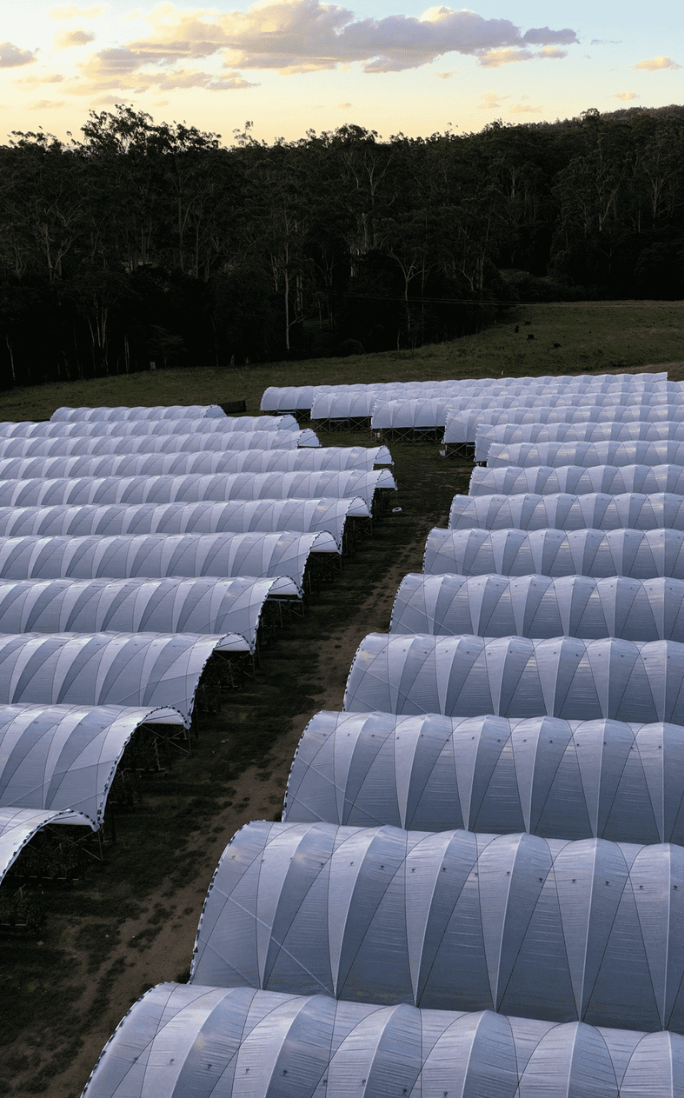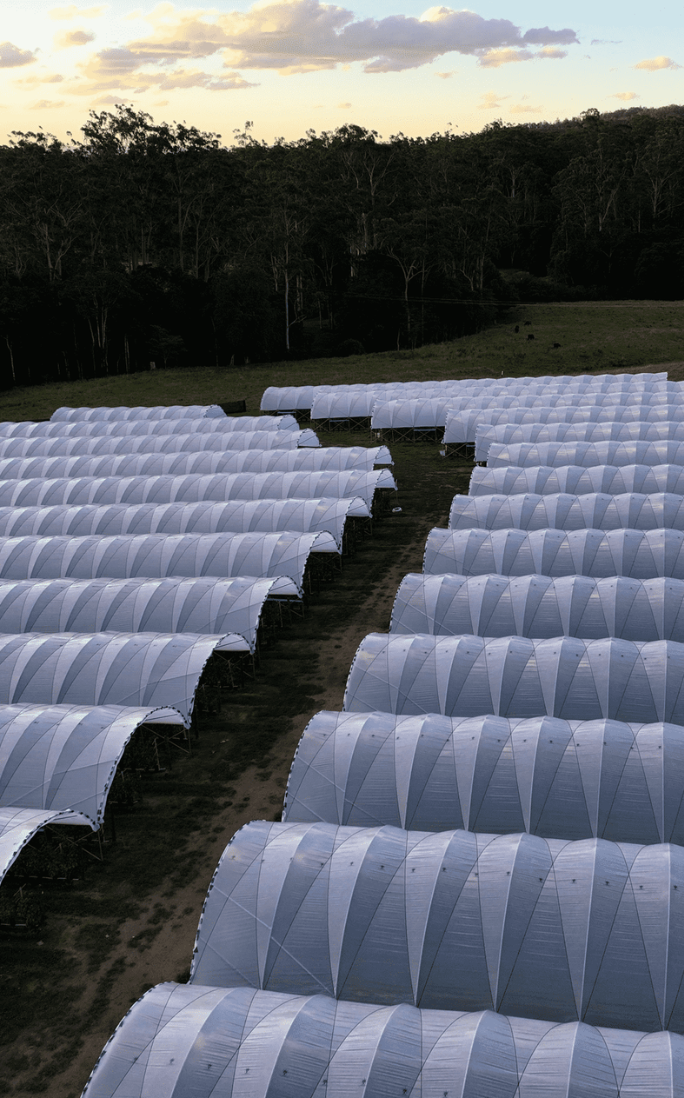Protection from Harsh Weather Conditions
Australia is known for its unpredictable climate, ranging from scorching heat to unexpected frost, heavy rains, and strong winds. These weather extremes can severely damage crops or hinder their growth. Polytunnels offer a controlled environment, allowing farmers to shield plants from excessive heat, cold, and other detrimental factors. The plastic covering of the polytunnel serves as a barrier against harmful UV rays, while also trapping heat inside to create a warmer, more stable environment for the plants.
Additionally, polytunnels prevent crops from being overexposed to heavy rainfall, which can lead to waterlogging, root rot, or erosion. By regulating the internal conditions, polytunnels help maintain optimal growing temperatures and humidity levels, improving crop survival rates.
Extended Growing Seasons
One of the biggest challenges Australian farmers face is the limited growing season, particularly in colder regions or during winter. With a polytunnel, growers can significantly extend the growing season for a wide variety of crops, including fruits, vegetables, flowers, and herbs. By creating a microclimate within the structure, polytunnels can allow planting earlier in the spring and harvesting later into the fall, providing additional months of productive growth.
This extended season not only improves profitability for farmers but also helps meet the increasing demand for fresh, locally grown produce year-round.
Improved Pest and Disease Control
Another advantage of polytunnels is their ability to reduce the risk of pests and diseases. In open fields, crops are vulnerable to insects, rodents, and plant diseases that can spread quickly and devastate yields. The enclosed environment of a polytunnel acts as a physical barrier, preventing many pests from reaching the crops. While complete exclusion may not be possible, polytunnels can dramatically reduce infestations, making it easier to manage pests and reduce the need for chemical pesticides.
Moreover, the controlled humidity and temperature within the polytunnel can help prevent the onset of fungal diseases, which thrive in overly wet conditions. This results in healthier crops and reduces the reliance on fungicides and other treatments.
Increased Yield and Quality
Polytunnels provide growers with the ability to manage and optimize growing conditions, leading to higher yields and improved crop quality. The ability to control light, temperature, and humidity ensures that crops receive the best possible conditions for growth. For instance, during the colder months, the warm environment inside a polytunnel allows plants to thrive when they would otherwise struggle.
Polytunnels also enable better water management, envirotech tunnel ensuring that crops are adequately hydrated without being waterlogged. Drip irrigation systems can be easily installed within polytunnels to conserve water and deliver it directly to the root zones. These ideal conditions result in more abundant and consistent harvests, with better quality produce that is free from weather-related damage.
Cost-Effective and Environmentally Friendly
Compared to glass greenhouses, polytunnels are much more cost-effective to construct and maintain. The materials used, typically steel frames and polyethylene coverings, are durable and can withstand the Australian climate while remaining affordable for growers. Polytunnels are also flexible and can be easily relocated or adjusted in size to meet the changing needs of the farm.
In terms of environmental impact, polytunnels help conserve water through controlled irrigation, reduce the need for chemical treatments, and promote the efficient use of land. By extending the growing season and protecting crops, they contribute to sustainable farming practices that reduce food waste and maximize land productivity.






Comments